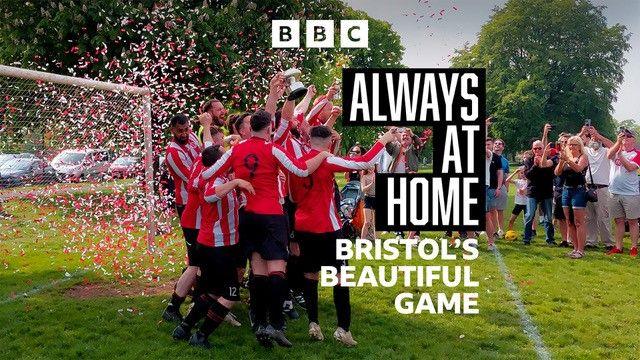The 120-year-old league where every game is at home
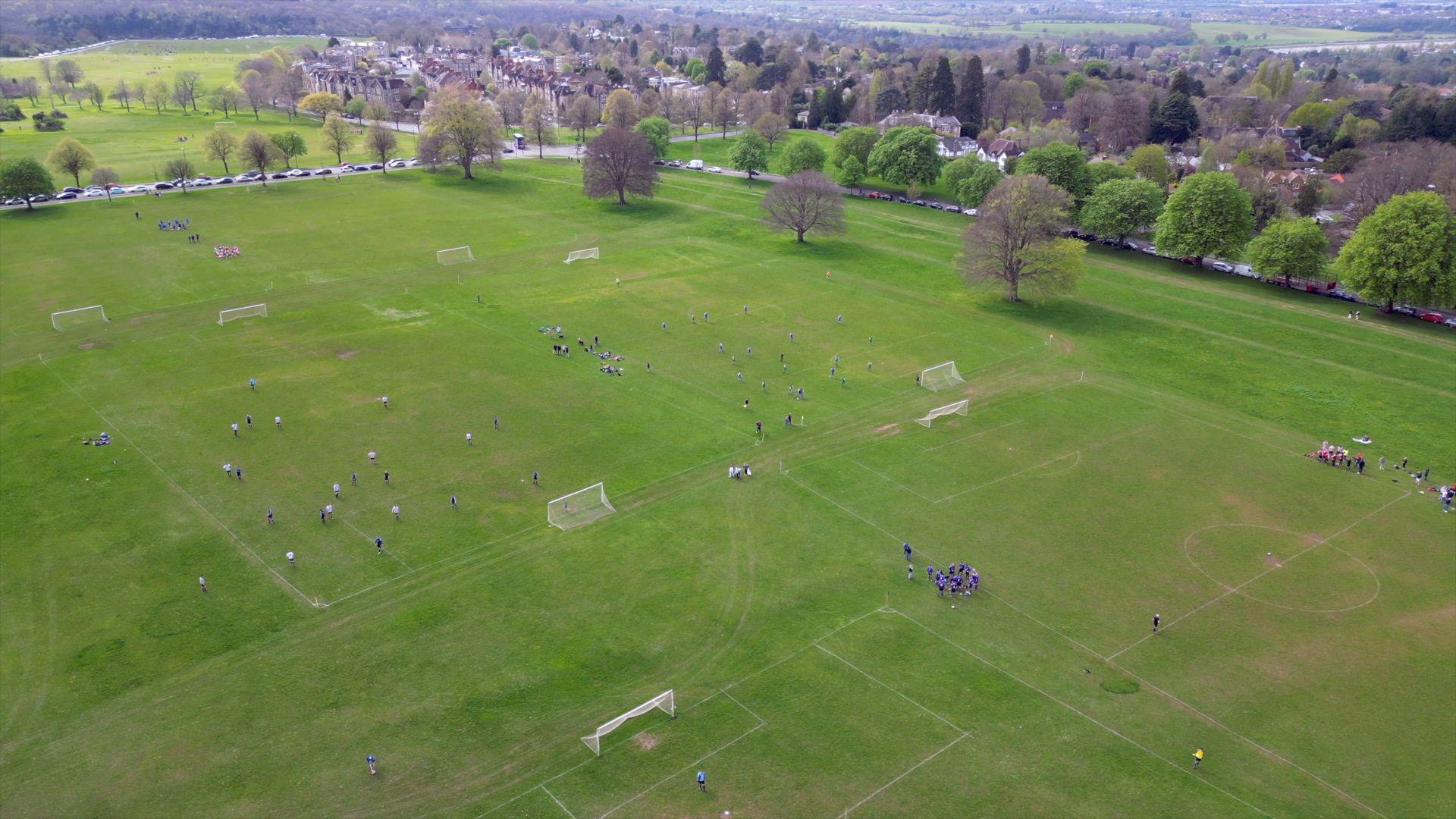
The Bristol Downs League takes place on 442 acres of parkland in the city with pitches alongside each other
- Published
How many football leagues can count a former England cricket idol, an England football captain, an EFL referee, and a serving councillor among its past and present players?
Dating back almost 120 years, the Bristol Downs League, in many ways, is just like every other amateur Saturday afternoon league played up and down the country.
But it is unique in that all four divisions play on the same set of pitches at 14:00 every Saturday afternoon. Every game is a home game.
The sprawling 442-acre open parkland of the Clifton Downs on top of the city’s Avon Gorge hosts 41 teams, more than 1,500 players, and over 400 matches a season.
BBC Radio Bristol spent the 2023-24 campaign there to find out about the people, players, officials and teams that make the league so special and part of the sporting fabric of the city.
To mark football's national Non-League Day on Saturday, 22 March, BBC Sport is revisiting this piece about the Bristol Downs League.
Listen to the first episode of 'Always At Home: Bristol's Beautiful Game - The first team'
The league legends
Since the Bristol Downs League was founded in 1905m a host of famous faces have laced up their boots in the park's changing rooms.
In the early years, former England cricket captain and Gloucestershire batter Wally Hammond played here.
Eddie Hapgood, another Three Lions captain who skippered the national football side as well as Arsenal, also played on the Downs during his amateur career in the 1920s.
Steve Stacey, the first person of African-American descent to play professional football in the UK, signed for Bristol City as a teenager from Sneyd Park in the Downs League in the 1960s, and today Labour councillor Kye Dudd also takes a break from his political life by playing in the league.
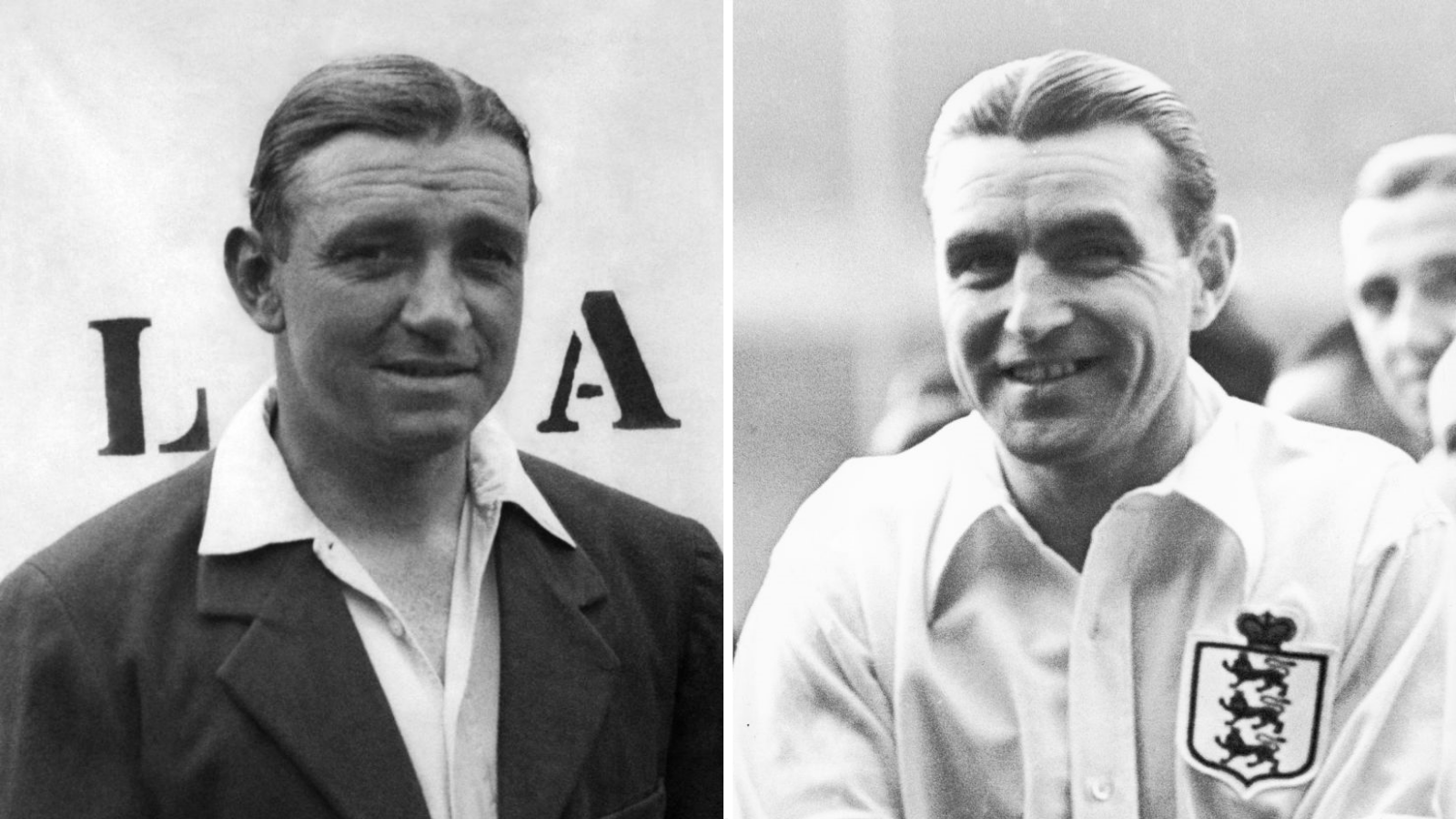
England captains Wally Hammond (left) and Eddie Hapgood both played in the Downs League
David Graveney, the former Gloucestershire captain who went on to be England cricket's chairman of selectors, called his time playing on the Downs the "happiest times of his sporting career".
"People look at me and say are you sane or what? But it was a most extraordinary and enjoyable period of time," he said.
"You’ve picked the national cricket team, you’ve travelled the world, you’ve played for Gloucestershire, you’ve captained Gloucestershire, but I'm adamant, [that] period of time was the happiest."
Former Scotland and Celtic goalkeeper Jonathan Gould is another who played in the league.
Gould is the son of former Wales and Wimbledon FC boss Bobby Gould and played as a striker on the Downs while he was still working in a bank, before turning professional.
"The weather was not always great up on the Downs, it’s a little bit exposed. It’s incredible to think so many people come up here on a weekend and enjoy the game of football," he said.
"How do we keep this going so in 100 years it’s still here? Maybe we put some money into it and keep it alive. The referees want to be here, the players want to be here. It's part of the culture of Bristol Saturday afternoons - it's incredible."
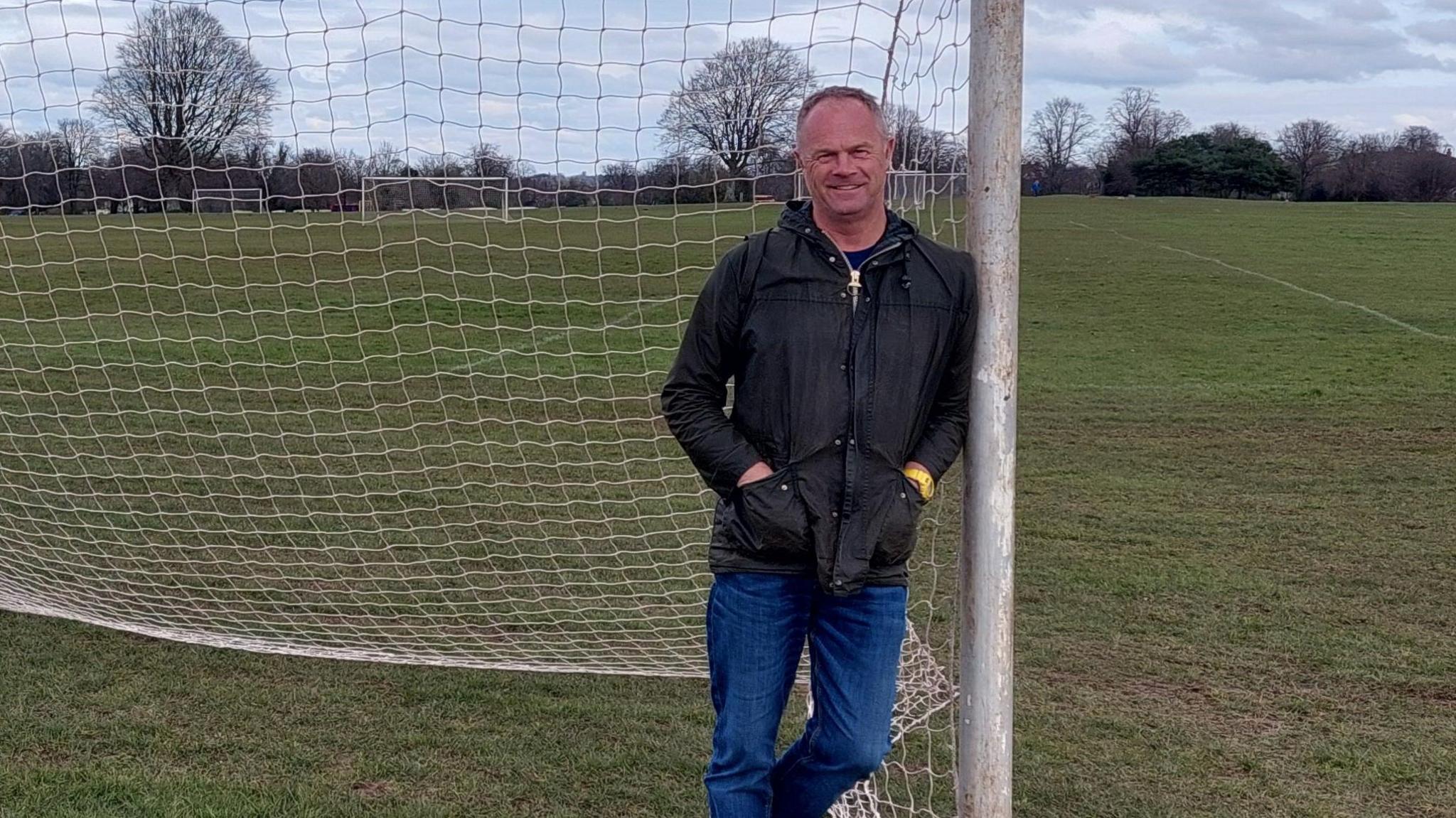
Former Scotland and Celtic goalkeeper Jonathan Gould played in the league before signing for a professional club
'The officials are like a family'
The referees at the Bristol Downs League are not always amateur.
When Richard Morris is not running the line at a League One or League Two game, he returns to where he started in order to offer his services.
"It's a chance for me to meet up with old friends and remember how I came up through the system and where I came from," he said.
"It's really important to remember who supported you so you can support the next generation."
A week previously, he was officiating in Portsmouth's game against Cheltenham Town, before joining the 20-30 referees that gather every Saturday to officiate on the Downs.
"When you walk in the referees dressing room at the Downs there's such a feeling of community there," Morris added.
"So many of the guys have been coming up refereeing games on the Downs for years and years and they really are like a family."
A stalwart of the Bristol refereeing community is Bill Bombroff. Now aged 86, he officiated matches in the old First Division at clubs including Liverpool and Tottenham Hotspur and in the European Cup.
Today he is the referees advisor for the Downs League, helping train new officials for the league.
"He will give you so much information, he will take you for the first week, ring you or email you on the Monday, little pointers on where you should go," said referee Nick Baddell.
"He will leave you then for two to three weeks, then he'll go to watch you again to see whether you've picked up on those bits of information he thinks you should work on."
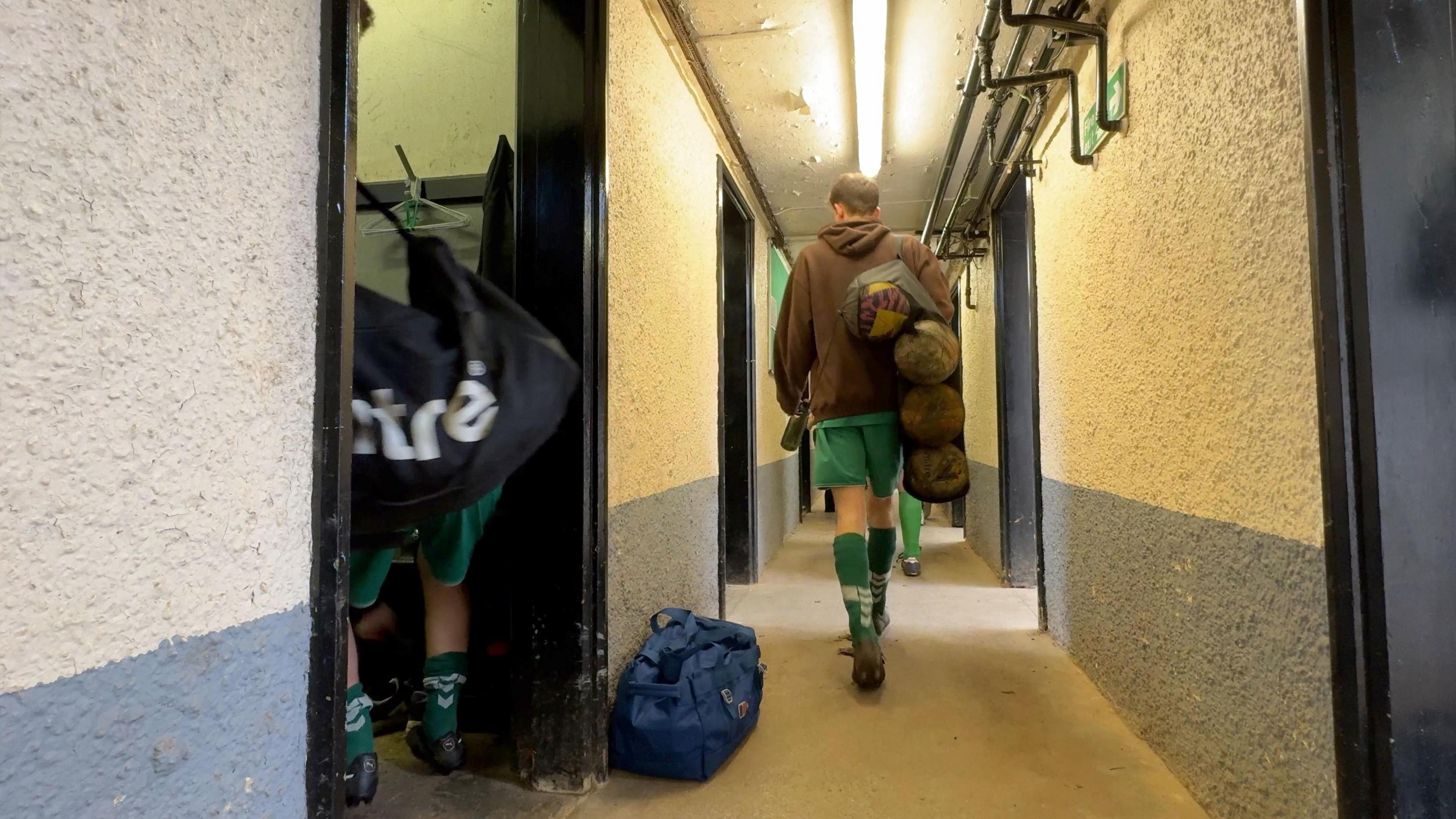
The changing room block on the Downs has not been updated in a long time
The oldest team
Sneyd Park FC is a founding member of the league and the only club to play continuously since it was formed - and the club's roots date back even further to 1897.
Today, the club's sides play across all four of the league's divisions along with Clifton St Vincent's - the league's second oldest team dating back to 1899.
"You come into the changing rooms and it's a bit of a mess but you see the history on the walls. This team's been playing out of these changing rooms for over 100 years and you get the old guys who are part of the club still turn up every week to support you," said one of Sneyd's players.
"When we get to a final you get a hundred people turn up, which for amateur football is pretty unusual at this level," he added.
"The rivalry with Sneyd, I suppose you'd put it on the list of the big derbies in English and Italian football. I don't think there's much love lost," said a Clifton St Vincent's player.
"I think things have calmed down over the years but there's still that intensity every game."
Don Stone made his debut for Snyed Park in 1956 when he was a teenager. He later became the club chairman and president of the league until 2024.
Stone was still visiting the Downs League most Saturday afternoons to watch his former team, until he passed away aged 93 in June.
"It's unlike any other league because you see all the teams every week," he said.
"If you played for a district league or a suburban team you only see them twice a year so you don't get to know the opposition, but I've got as many friends in the opposition as I've got in Sneyd."
